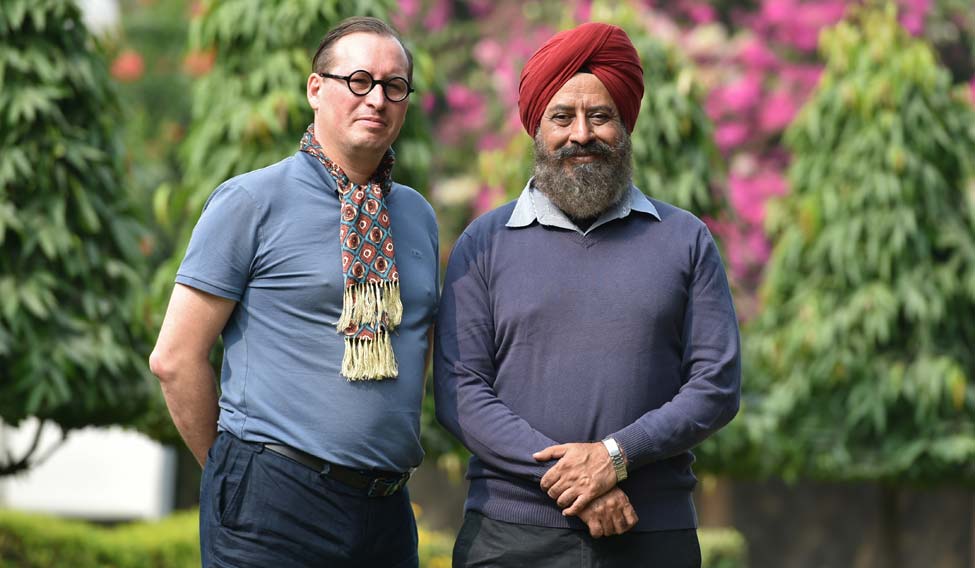What has the participation of Indian soldiers in the battles of Ypres in faraway Belgium got to do with India's freedom movement? “A lot,” say military historians Squadron Leader (Retd) Rana T.S. Chhina and historian Dominiek Dendooven, who have together brought out a coffee tale book, India in Flanders' Fields. The book, along with an exhibition on the subject, will be launched by King Philipe of Belgium on November 7 in Delhi. The king, and his wife, Queen Mathilde, are on a state visit to India.
Dendooven explains that the Indian participation in the war is a turning point in the history of India's freedom movement. It changed even Mahatma Gandhi's outlook. The authors explain that Gandhi had initially been supportive of helping in the war efforts, as it was a just war. There was also the reassurance that the British, beholden to Indian help, would expedite the process of giving home rule or a dominion status. But the British didn't. In fact, soon after the war ended, there were events like the Jallianwala Bagh massacre. Everyone, from Gandhi to ordinary Indians, felt betrayed, and the movement for poorna swaraj began.
Chhina is secretary and editor of Centre for Armed Forces Historical Research United Service Institution of India. Dendooven is with the Flanders Fields Museum. The two, having a shared interest, have collaborated for the past ten years on their works.
Over one million Indian troops served overseas during WWI, and nearly 74,000 were killed, either in battle or due to the cold. Another 48,000 labourers worked behind the lines. Field Marshal Sir Claude Auchinleck, commander in chief of the Indian Army from 1942, said that the British could not have come through both the great wars if they hadn't had the Indian Army with them.
India's participation in the European theatre was a first on many counts. The Battles of Ypres I and II were particularly important. “It was the first time Indian soldiers were deputed and fought on European soil. It was the first time an Indian fell in action, it was also the first time an Indian was awarded the Victoria Cross. It was also the first time chemical weapons were used (Ypres II) and Indian soldiers were victims of this attack,'' says Chhina.
“That war was important for India in so many ways, yet only now it is being recognised and researched,'' says Dendooven. Indians, for the first time, so far away from home, were put together, irrespective of caste and religion; they knit together as one. Also, they realised that the other Whites didn't treat them with the same disrespect as the British. It was an awakening.
The researchers have found letters from the censors' offices, in which the soldiers have written about all these wondrous thoughts to their families back home. “Even more amazing was coming across sound recordings of Prisoners of The German War at the Berlin Museum,'' says Dendooven, recalling how he got goosebumps hearing a Gurkha's voice from a hundred years ago. He was so alienated, so far away from home.
Chhina says that the events soon after the end of the war—the Indian fight for independence— took over and the role of Indian soldiers was forgotten, partially by itself, partially because it was seen as part of our colonial baggage. “But we've matured now and are reclaiming parts of our history which we and others had ignored. The Indian diaspora has specially played a big role in giving Indians their due in world history. “These exercises are not about gloating about the wars but to recall a shared past. The future can only be based on lessons from the past,'' the authors say.
While amazed at the amount of stuff they've found during their research, the duo say they've only scratched the surface. There is so much more material about Indians in World War I alone to unearth. For instance, while the descendants of a few of these soldiers have been traced, there are so many more to find. “A JNU scholar Radhika Singha has, for instance, started research on the labour corps ,'' says Dendooven.






